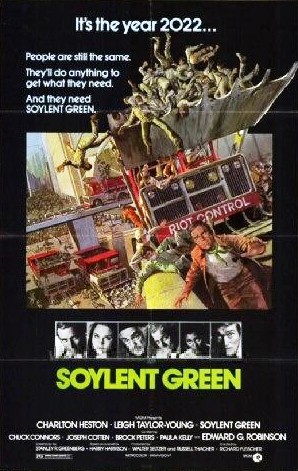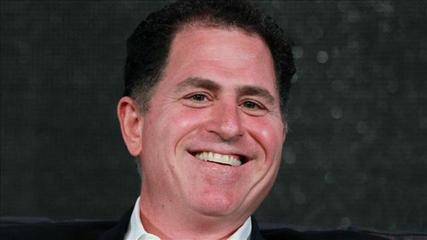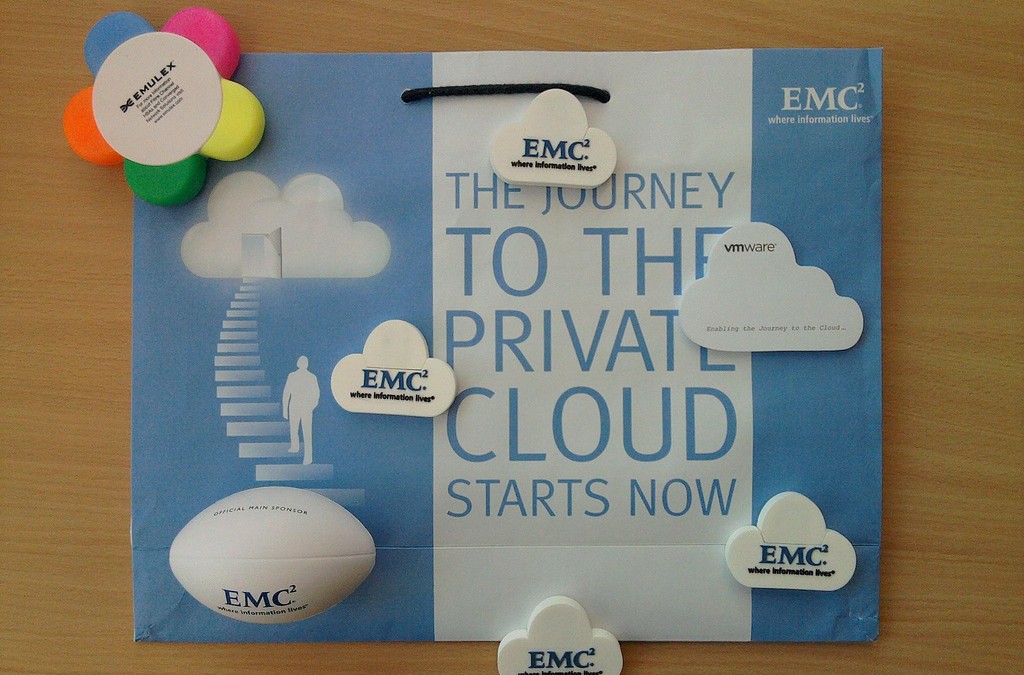
Lost Prediction #4 -- My Steve Jobs movie returns to Netflix
At least one reader pointed out that I somehow missed 2016 Prediction #4, so let me throw something in right here. Steve Jobs: The Lost Interview will shortly return to Netflix worldwide!
Our movie was on Netflix in the USA and Canada for a couple of years (it’s still streaming on Netflix in the UK) but the North American deal ended sometime in November when rights reverted from Magnolia Pictures back to John Gau Productions. The film had already disappeared from iTunes and Amazon, etc., but we hadn’t noticed because, well, Magnolia didn’t bother to mention it and we’re only pretending to be movie producers.

Prediction #8: Apple WILL NOT buy Time Warner
If my last prediction about the Internet of Things becoming a security nightmare seemed a no-brainer to half of my readers, as some commenters suggested, this prediction that Apple won’t buy Time Warner will probably be a no-brainer for the other half, simply because it is always easier to say an acquisition or merger won’t happen than that it will. But I think there is something to be learned from why I don’t think this acquisition will take place -- something that says a lot about Apple as a company.
That this topic comes up at all is because, as frequently happens these days, activist investors are trying to bully Time Warner into selling all or part of itself, this after having already bullied the company into spinning-off its cable TV operation and then its print publishing operation. So now what’s mainly left at Time Warner are cable TV networks, TV and film production and distribution, and a modest online operation. All of this, but especially premium cable channel HBO, is supposed to appeal to Apple’s eye for quality.

Prediction #7: Internet of Things becomes a security nightmare
This one is simple -- a confluence of anti-hacking paranoia combined with the Internet of Things (IoT), which will lead to any number of really, really bad events in 2016.
Remember how the CIA or the NSA or whatever agency it was hacked a few years ago the Iranian nuclear centrifuges making enriched uranium? The centrifuges updated their software over the Internet, loading doctored code that eventually caused the machines to overspeed and shake themselves to pieces, putting the Iranian nuclear program months or years behind.

Predictions 5 & 6: Drones and driverless cars? Not this year
When it comes to predictions it is often easiest just to take some really popular new technology and point out the obvious time it will take to be actually adopted. You could say I’m doing that here with drone deliveries and driverless cars, but I like to think my value-added is explaining why these will take so much longer than some people expect.
Amazon.com has been making a lot of noise about using small helicopter drones to deliver packages. I’m not here to say this is an impossible task or that drones won’t at some point be used for this purpose, but what I am saying is that it won’t happen this year, won’t happen next year, and in any true volume won’t happen even five or 10 years from now.

Predictions #2 (and 3?): Microsoft and Apple hit walls
It isn’t easy being huge as both Apple and Microsoft are starting to realize. Both companies are incredibly successful and I’m not here to say either is in real danger, but both are suffering major structural challenges that will hurt them in 2016. What’s key for these predictions is how they respond.
I’ll deal with Microsoft first because there the challenges and solutions are both clearer than they are with Apple. I’ve been very impressed with Microsoft CEO Satya Nadella who I think hasn’t saved the company, because it didn’t need saving, but he’s a real improvement over Steve Ballmer. Nadella has done the best he can to get Microsoft in order and reinvigorated, not an easy job. His major remaining challenges involve Windows Phone and Windows 10.

2016 Prediction #1 -- Beginning of the end for engineering workstations
First a look at my predictions from one year ago and how they appear in the light of today:
Prediction #1 -- Everyone gets the crap scared out of them by data security problems. Go to the original column (link just above) to read the details of this and all the other 2015 predictions but the gist of it was that 2015 would be terrible for data security and the bad guys would find at least a couple new ways to make money from their hobby. I say I got this one right -- one for one.

Welcome to 2016 predictions week!
Readers love predictions so for 15 years or so I’ve been making lots of them during the first full week of each new year. The first time I did a predictions column it was because I couldn’t think of anything else to write about that day and the reaction from readers was so strong that I’ve been stuck doing them ever since. What started as one column per year filled with about 10 predictions has expanded over time to as many as 10 separate predictions columns because as I age I am becoming ever more long-winded. Sorry. It’s reached the point this year where this introductory column won’t even contain predictions, just a guide to the several columns that will follow in the next few days.
They will begin, of course, with a look back at my predictions from a year ago to see how smart or stupid I was. Historically I’ve been about 70 percent smart and 30 percent stupid in my predictions with that number more or less dependent on how vague I can be. Sorry again.

My fridge is listening to me
It seems oddly fitting that this week -- a week scarred by the bizarre and violent mass murder in San Bernardino -- that I received a LinkedIn invitation to connect with someone who listed this as their job description:
Install, maintain, and repair GPS, Wi-Fi, and security camera systems on tour buses. In 2010, working with grant money from Homeland Security, I installed security systems on a fleet of tour buses and I have been maintaining those systems since then. In 2011, I helped install multi-language listening systems on tour buses and have been the lead maintenance technician. Currently, I am project manager for upgrading a fleet of 50 tour buses with new GPS systems using Homeland Security grant monies. This requires coordinating with engineers of service providers to solve unusual, complex problems.

Soylent Green -- Now made with more women!
Soylent Green is the punchline of a bad joke told to me at the breakfast table by Channing, my 13 year-old son, but in a way it is fitting for this column about women executives in danger of being chewed-up by their corporate machines. And kudos to you if you caught the reference to Edward G. Robinson’s final film -- about an over-populated world where people are recycled into cookies.
First up is Yahoo CEO Marissa Mayer, whom I’m told is rapidly losing the support of her hand-picked board. Mayer, who is expecting twins, will probably not be returning from her upcoming maternity leave and Wall Street has begun speculating about possible successors.

Amazon’s cloud monopoly
Earlier this year two different research reports came out describing the overall cloud computing market and Amazon’s role in it. Synergy Research Group saw Amazon as by far the biggest player (bigger in fact than the next four companies combined) with about 30 percent market share. But Gartner, taking perhaps a more focused view of just the public cloud, claimed Amazon holds 82 percent of the market with cloud capacity that’s 10 times greater than all the other public cloud providers combined. I wonder how these disparate views can be possible describing the same company? And I wonder, further, whether this means Amazon actually has a cloud monopoly?
Yup, it’s a monopoly.

Why Yahoo is worth less than nothing
A reader pointed out to me today that Yahoo, minus its Alibaba and Yahoo Japan stakes plus cash, is now worth less than nothing according to Wall Street. This says a lot about Yahoo but even more about Wall Street, since the core company is still profitable if in decline. If I were a trader (I’m not) that would argue Yahoo is a buy since there’s likely to be a future point at which the company will be free of those other riches and even Wall Street will be forced to give the carcass a positive value.
But when I heard about the negative value story the first thing that came to mind was something my old friend Joe Adler said long ago about one of my startups. "Your company is starting to have a stench of death about it", Joe said. And Joe was right.

It's Michael Dell versus the world and Dell will win
In my last column I wrote that Dell buying EMC is a great idea (for Dell) and left it to this column to more fully explain why that is so. It takes two columns because there is so much going on here in terms of both business models and technologies. As the title suggests it comes down to Michael Dell against the world and in this case I predict Dell will win, Cisco, HP and IBM will lose, Apple will be relatively unaffected and I don’t really know what it will mean for Microsoft but I think the advantage still lies with Dell.
One thing that is key is every one of these companies except Dell is publicly traded and answerable to Wall Street while Dell is for now answerable only to the gods of Texas bidness who must at this point be giddy with greed. So all of these companies except Dell have essentially the same playbook -- cutting costs, laying-off workers and outsourcing like crazy all to pay for the dividends and stock buybacks Wall Street defines these days as prudent corporate behavior. In contrast to this defensive game Dell can use its free cash flow to transform the company and dominate the market -- what 20 years ago we would have thought of as the right way to build a company. How quaint.

Dell buys EMC and gets the corporate cloud for free
The Wall $treet Journal carried a story last week about Dell Computer possibly buying EMC, the big storage vendor, and this morning Dell confirmed it, pinning a price of $67 billion on the deal. There’s a lot to wonder about in this combination, which I think is pretty brilliant on Dell’s part even if I’m not generally in favor of mega-mergers. But it seems to me most of the experts commenting on the deal have it ass-backwards as Wall Street once again proves it doesn’t really understand technology business.
EMC has this large but aging storage division and a valuable subsidiary in VMware, of which EMC owns 80 percent. Activist investors have been rumbling that EMC should spin-off VMware to EMC shareholders because that’s the best way to realize the value of the asset and share it tax-free. Michael Dell appears as something of a white knight except he is expected, too, to get rid of VMware to finance the deal. The only thing wrong with this picture is that all the people who want to spin-off or sell VMware don’t seem to realize that’s where the value of this EMC deal lies for Dell.

Chinese talking cybersecurity means security is already lost
A longtime reader and good friend of mine sent me a link this week to a CNBC story about the loss of fingerprint records in the Office of Personnel Management hack I have written about before. It’s just one more nail in the coffin of a doltish bureaucracy that -- you know I’m speaking the truth here -- will probably result in those doltish bureaucrats getting even more power, even more data, and ultimately losing those data, too.
So the story says they lost the fingerprint records of 5.6 million people! Game over.

Steve Jobs: The Man in the Machine
Alex Gibney’s Steve Jobs documentary is available now in some theaters, on Amazon Instant Video and, ironically, on iTunes. It’s a film that purports to figure out what made Steve Jobs tick. And it does a lot, just not that.
I’m not a dispassionate reviewer here. More than a year before Jobs died I tried to hire Alex Gibney to make a Steve Jobs film with me. At that point he suggested I be the director, that he’d coach me ("It’s not that hard", the Oscar-winner claimed.) We talked and met but didn’t come to a deal. Later Gibney decided to do a Jobs film on his own -- this film -- and he came to me for help. We talked and met but again didn’t come to a deal. Nothing is unusual about any of this, but it made me eager to see what kind of movie he would make and how it would compare to the one I originally had in mind.

